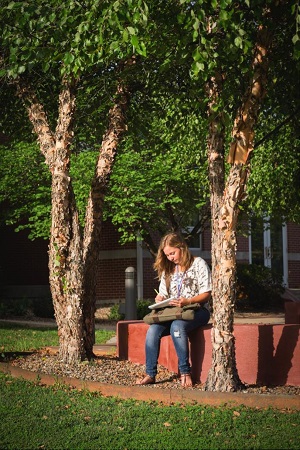Tips for education students: how to spot and prevent “burnout”
As we approach the end of the academic year — when summer break is in sight but just out of reach — it is highly common for teachers, as well as education students, to start feeling burnt out, whether from managing a classroom of your own or closing out a challenging semester.
 If you begin to feel yourself losing energy, unmotivated to finish the task at hand, ask yourself the following questions:
If you begin to feel yourself losing energy, unmotivated to finish the task at hand, ask yourself the following questions:
- Have I become cynical or critical at work/school?
- Do I drag myself to work/class and have trouble getting started once I arrive?
- Have I become irritable or impatient with my peers, colleagues, or my students?
- Do I lack the energy to be consistently productive?
- Do I lack satisfaction from my achievements?
- Do I feel disillusioned about my job?
- Have my sleep habits or appetite changed?
- Am I experiencing unexplained headaches, backaches or other physical complaints?
Individually, these symptoms can be the effect of a multitude of different causes. However, according to the Mayo Clinic, if you answer yes to any or several of these questions, you may be experiencing “job burnout”.
While the number of new teachers who leave the profession each year has dwindled and the few that end up leaving do so for a wide variety of reasons, one cause is this: Teachers are allowing themselves to get burnt out and do not know how to combat it.
An article published by Teach Thought shares suggestions from seasoned educators on ways to reduce teacher burnout. A few of those suggestions include:
- Take time to laugh — about the enjoyable and the unbearable. It empowers you, recharges you and it’s also contagious.
- Monitor your emotions — be hyper-aware of how you are feeling and when you begin to feel overwhelmed or sense the anxiety coming on, take a step back from work for a moment and try to put things into perspective.
- Know your limits and set them — you know what is too much and when you feel chaos and confusion start to seep in, so say yes when you can but learn to say “No, I’d love to but I just have too much on my plate right now.”
William Woods bachelors in education students will spend a semester student teaching, where they will gain experience in an actual classroom leading students and getting a glimpse of their future. There is no better time than now to start developing healthy professional habits and practicing techniques for stress management and burnout prevention.

